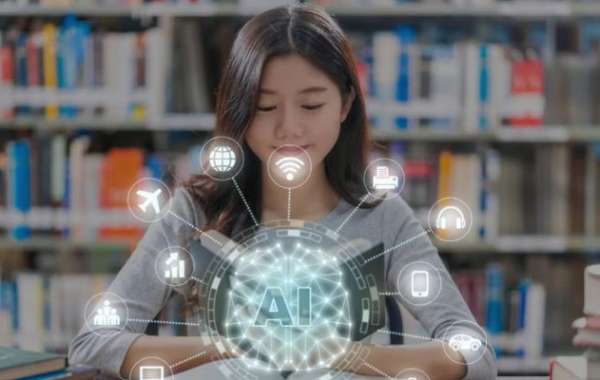AI is no longer just a vision of the future it's actively transforming the job market today. From chatbots managing customer inquiries to AI-driven analytics opening up new career paths, the way we work is changing rapidly. While concerns about automation replacing jobs are common, the reality is that AI is creating entirely new roles that barely existed a few years ago. In fields like healthcare, marketing, and manufacturing, AI is not only enhancing efficiency but also helping workers find better opportunities. In this blog, we’ll explore how AI reshapes job responsibilities, boosts productivity, and paves the way for new careers. If you're wondering how AI might impact your career prospects. Gain insights from industry professionals at FITA Academy, master cutting-edge tools, and launch your career in this rapidly growing field. Ready to discover the magic behind Artificial Intelligence success? Let’s take a closer look!
AI offers increased efficiency, innovation, and new career opportunities, but it also raises concerns about job displacement and workforce transformation. As automation and AI technologies evolve, businesses, employees, and policymakers must understand their impact on employment and job roles. To succeed in an AI-driven future, workers will need a combination of technical expertise and interpersonal skills. This shift calls for a reimagined approach to education, training, and workforce development to ensure broad participation.
Transformation of Job Roles
AI is increasingly automating tasks that were once performed by humans, particularly those that involve repetitive, standardized processes. In sectors such as manufacturing, logistics, and customer service, robots and AI-driven systems can now handle functions like assembly lines, inventory tracking, and responding to customer inquiries. This shift is enhancing efficiency and reducing human error. However, it’s important to recognize that AI isn’t merely replacing jobs it’s transforming them. Many roles are evolving in response to AI integration. For example, in healthcare, AI helps doctors by processing medical data and helping with diagnoses, but human expertise and empathy are still essential. In marketing, AI can take over time-consuming tasks like data analysis, allowing marketers to focus on more creative and strategic aspects of their work. By understanding these challenges, we can better navigate AI's future and impact on our world. Sign up and get started on the AI Course in Bangalore.
Emergence of New Roles
As AI continues to penetrate various industries, new career opportunities are arising. These roles typically require a blend of technical knowledge and interpersonal skills. Fields like data science, AI engineering, and machine learning are seeing a surge in demand, as organizations seek professionals to design, deploy, and maintain AI technologies. Furthermore, the expansion of AI is likely to foster the creation of entirely new sectors and business models. For instance, AI-driven innovations in finance and insurance are creating a need for experts who can decode complex algorithms and apply AI to enhance decision-making and strategy.
Impact on Employment
AI holds the promise of generating new job opportunities, but it also brings about challenges. Automation of repetitive tasks could displace workers in sectors like transportation, retail, and administration. Yet, experts suggest that these disruptions won’t occur abruptly. Rather than widespread job losses, AI may foster a shift to more specialized, higher-skill roles. This evolution could lead to a mismatch between current workforce capabilities and the advanced skills demanded by the AI-driven economy. Gain the skills that top employers are looking for and begin your journey at the Artificial Intelligence Course in Marathahalli.
Adapting the Workforce
For AI to have a positive influence on the workforce, it’s crucial to focus on reskilling and upskilling initiatives. Governments, businesses, and educational organizations must prioritize training programs that prepare workers for the demands of an AI-driven world. Skills in areas such as data literacy, foundational machine learning, and essential soft skills like creativity, emotional intelligence, and critical thinking will become increasingly important. The rise of flexible work models and the economy is expected to accelerate, driven by AI’s ability to tailor tasks and projects more effectively. This shift could foster more customized work environments and promote collaborative partnerships between humans and AI, creating new opportunities for personalized and dynamic work experiences.
AI is transforming the workforce in ways we’ve never seen before, creating new roles while phasing out outdated ones. The key to success in this rapidly changing landscape is embracing innovation, staying adaptable, and continually upgrading your skillset. While AI will automate tasks, it also opens doors to exciting, high-demand careers that require human ingenuity and problem-solving. By leveraging AI tools and fostering a growth mindset, workers can thrive in this dynamic job market. The future is bright for those ready to learn, evolve, and harness AI’s full potential to drive their career forward. To become a certified AI professional Join us today at Training Institute at Bangalore.














